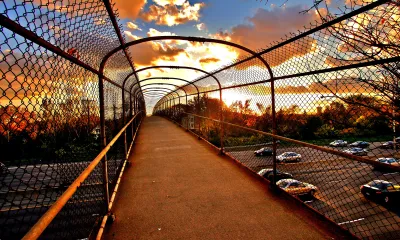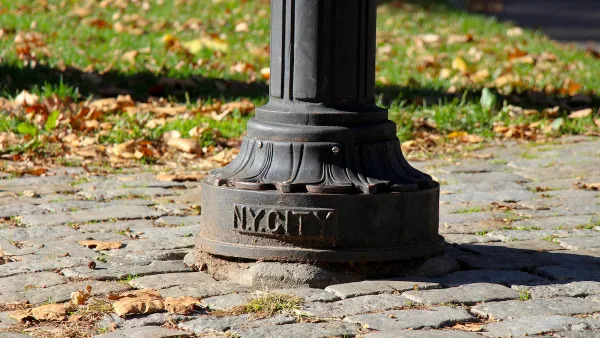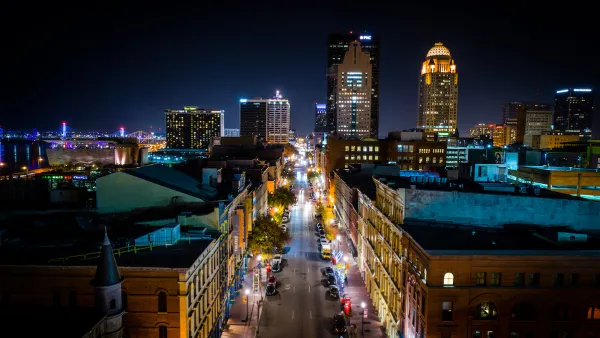Broken Sidewalk analyzes an example of the kind of street design decisions continuing to encroach on pedestrian infrastructure around the country. The case study: Ninth Street in Louisville.

"Louisville’s Ninth Street Divide just got a little bit wider, and Downtown Louisville a little less walkable," according to an article by Branden Klayko. More specifically: "During a street repaving project, two small pieces of sidewalk in the median of Ninth Street (aka Roy Wilkins Boulevard) at Magazine Street were removed, and engineers from Metro Louisville Public Works say the move is ab [sic] effort to increase safety because there’s no traffic signal at the intersection."
Klayko proceeds to a scathing critique of the reasoning behind the decision, extending the blame for the lack of priority given to pedestrians to laws throughout the state, not just in Louisville.
Angie Schmitt picked the story up for Streetsblog, noting Louisville's high rate of pedestrian fatalities (four times the number per capita as Washington, D.C.). Klayko updated his story after Streetsblog brought focus to the project to note that readers had pointed out the potential ADA violations of the redesign.
FULL STORY: Wait, what?! Louisville removes sidewalk in the name of pedestrian safety [Updated]

Analysis: Cybertruck Fatality Rate Far Exceeds That of Ford Pinto
The Tesla Cybertruck was recalled seven times last year.

National Parks Layoffs Will Cause Communities to Lose Billions
Thousands of essential park workers were laid off this week, just before the busy spring break season.

Retro-silient?: America’s First “Eco-burb,” The Woodlands Turns 50
A master-planned community north of Houston offers lessons on green infrastructure and resilient design, but falls short of its founder’s lofty affordability and walkability goals.

Test News Post 1
This is a summary

Analysis: Cybertruck Fatality Rate Far Exceeds That of Ford Pinto
The Tesla Cybertruck was recalled seven times last year.

Test News Headline 46
Test for the image on the front page.
Urban Design for Planners 1: Software Tools
This six-course series explores essential urban design concepts using open source software and equips planners with the tools they need to participate fully in the urban design process.
Planning for Universal Design
Learn the tools for implementing Universal Design in planning regulations.
EMC Planning Group, Inc.
Planetizen
Planetizen
Mpact (formerly Rail~Volution)
Great Falls Development Authority, Inc.
HUDs Office of Policy Development and Research
NYU Wagner Graduate School of Public Service



























